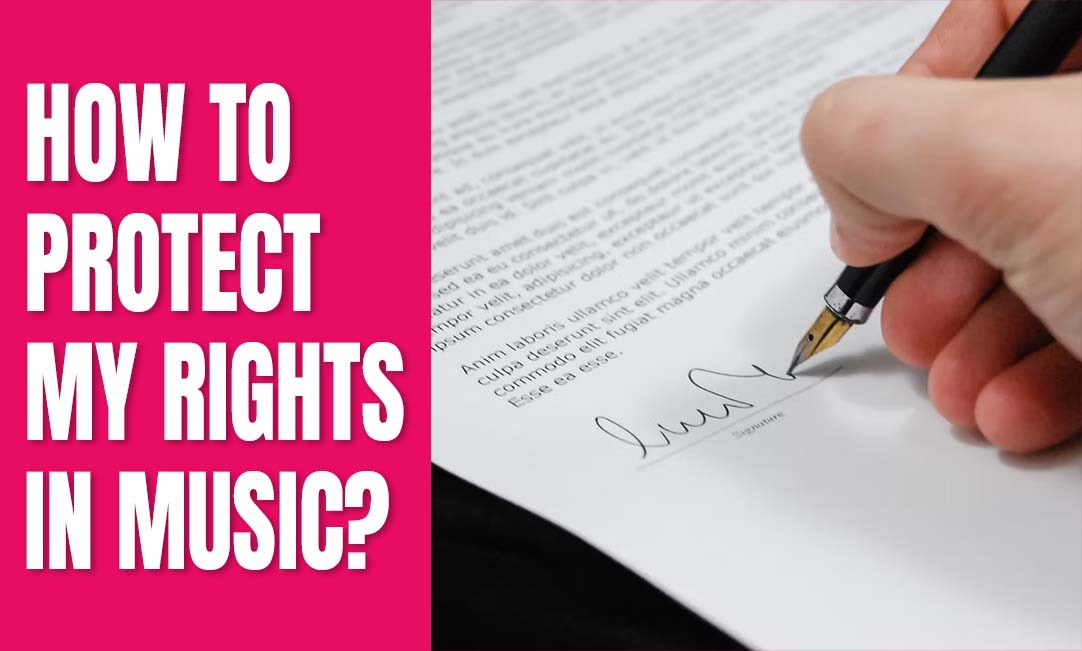How can I protect my rights as an artist or producer?

18-Dec-2023
The music industry has undergone significant changes over the years, with the independent revolution flourishing due to the growing influence of social media. Nowadays, many music artists release their music independently and become well-known without the help of a record label. While there are many advantages to being an independent artist, there are also some disadvantages. For instance, artists without working with a record label often overlook the legal implications of their work, which could end up costing millions. Therefore, it is crucial for artists to understand their rights and how to protect them to ensure they receive the recognition and compensation they deserve. This blog will explore the intellectual property rights of artists and producers, as well as ways to safeguard those rights in the modern digital age.
Understanding Intellectual Property Rights
Protecting the creative works of music artists is a critical aspect of the music industry. This involves securing legal protection in the form of trademarks, copyrights, and patents. To safeguard their intellectual property, those in the music industry need to follow certain procedures such as registering trademarks, securing patents, and registering their music with the relevant copyright office. By doing so, they can protect their brand and prevent unauthorized usage.
Forms of Intellectual Property Protection
· Copyright
Copyright laws safeguard original works of authorship, including recordings and musical compositions. Music artists are granted exclusive rights by copyright over the use, reproduction, and distribution of the music.
· Trademarks
Trademarks are pictures, titles, logos, or other symbols set one business or product apart from another. Music artists can use trademarks to protect their album titles, stage names, band names, and logos.
· Patents
These are legally binding protections for inventions and processes. In the music business, patents can be used to protect innovative ideas and technological advancements like digital audio processing and music software.
· Trade Secrets
These are private, proprietary business secrets that provide an edge over rivals. In the music industry, trade secrets could be obscure production techniques, private musical compositions, or covert marketing strategies.
Ways to Protect Your Rights
1. Register Your Work with the Copyright Office
Even though copyright is automatically protected, registering your work with the copyright office makes your ownership publicly known. It guarantees you receive statutory damages and attorney's fees in the event that your work is infringed upon, which can be extremely helpful in legal disputes.
2. Collaborate After Signing Legal Contracts
When you work with producers, distributors, or other artists, always use detailed contracts. These contracts should specify the project's parameters, payment terms, ownership rights, and set royalties. Don’t be afraid of signing contracts. A legally binding agreement protects each and every party.
3. Leverage Licensing Agreements
With licensing agreements, you can maintain ownership of your creations while giving others restricted permissions to use them. To stop your music from being misused, ensure your licensing agreements specify the terms of use, duration, and compensation in detail.
4. Monitor and Enforce Your Right
Keep an eye on how your music is used both online and off. Use online resources and tools that can assist you in locating instances of unapproved use. Take swift legal action if you discover someone is using your work without your consent. A lawyer's cease and desist letters can be useful in putting an end to copyright violations.
5. Join Professional Organizations
Think about becoming a member of associations in your industry, like music artist unions. On behalf of their members, these organizations frequently offer legal resources, counsel, and advocacy.
6. Educate Yourself
Keep up with laws pertaining to copyright and intellectual property rights that are pertinent to your line of work. Your best line of defence against possible violations is knowledge.
Conclusion
As a producer or artist, it is crucial that you remain vigilant, proactive, and well-versed in intellectual property laws to safeguard your rights. You can protect your creative endeavors and assure you are acknowledged and paid for your skill and labor by registering your work, using contracts, getting license agreements, keeping an eye on usage, and remaining informed. Remember, your greatest asset is your creativity, so guard it carefully.